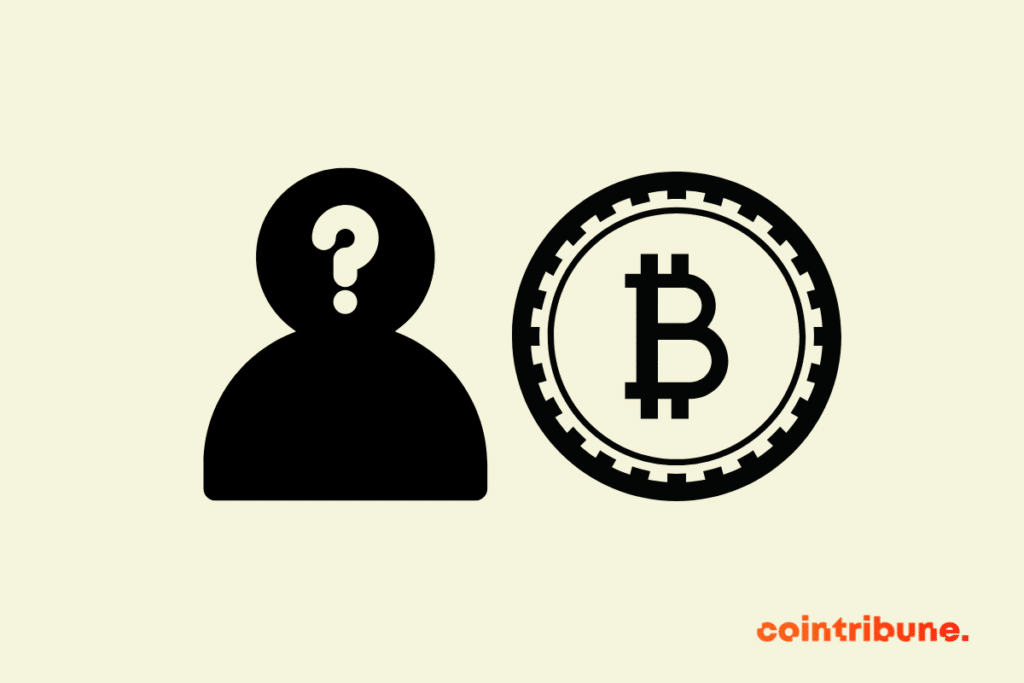Anonymity and Bitcoin: Everything You Should Know
The growing use of cryptocurrencies like Bitcoin raises a major concern: privacy. Indeed, contrary to a common misconception, Bitcoin does not offer complete anonymity. In the face of this challenge, Bitcoin security tips become essential for users wishing to optimize the anonymity of their transactions while complying with existing laws and regulations. In this context, how can one find the right balance between anonymity and regulatory compliance in the world of cryptocurrencies?

The myth of Bitcoin’s anonymity
Bitcoin, with its logo, is often perceived as an anonymous currency, but this idea is largely based on misunderstandings. Let’s take a closer look at transactions on the blockchain and the actual level of anonymity offered by this cryptocurrency.
Transactions on the blockchain
Bitcoin transactions are recorded on the blockchain, a public and decentralized ledger. Every transaction is visible to anyone with access to the blockchain, which means that the history of exchanges can be tracked and analyzed. As a result, Bitcoin does not offer complete anonymity.
Pseudonymity rather than anonymity
Bitcoin actually offers a form of pseudonymity rather than anonymity. Specifically, Bitcoin wallets are identified by unique alphanumeric addresses and not by personal information. Therefore, if a user’s identity is linked to an address, it becomes possible to track their transactions on the blockchain.
Techniques to improve anonymity
Some methods can be used to enhance the anonymity of Bitcoin transactions in order to preserve user privacy and security. The most common are the use of unique addresses, Bitcoin mixers, and anonymization protocols.
Unique addresses
A simple way to improve anonymity is to use unique addresses for each transaction. Most modern wallets automatically generate new addresses for each crypto transaction. This technique adds an additional layer of difficulty in identifying the user from their transactions.
Bitcoin mixers
Bitcoin mixers such as Tornado Cash are services that allow for the obfuscation of transaction traceability by mixing the funds of multiple users. These services can help enhance anonymity but also present some risks.
How do crypto mixers work?
Bitcoin mixers collect funds from multiple users by mixing them in a common pool. The funds are then redistributed to users to new addresses, after deducting a fee for the service. This operational mode of Bitcoin mixers complicates the association of a specific transaction with a user.
Risks associated with crypto mixers
Mixers present several risks, including the possibility of losing one’s funds if the service is not reliable, or becoming involved in illegal activities if the other users of the mixer are engaged in such activities. Additionally, the use of mixers can attract the attention of authorities, as they are often associated with suspicious activities.
Anonymization protocols
Anonymization protocols can also be used to enhance the privacy of BTC transactions. These privacy protection systems come in several types on the market. The most well-known are CoinJoin and Mimblewimble.
CoinJoin
CoinJoin is a protocol that allows multiple users to combine their transactions into a single global transaction. By doing this, it becomes more difficult to determine the different origins of the funds thus pooled. Several wallets and crypto services already integrate CoinJoin to enhance transaction privacy.
Mimblewimble
Mimblewimble is another anonymization protocol that uses advanced techniques to ensure transaction privacy. It does not store exchange data on a public blockchain, but rather in a combined, aggregated, and encrypted form. This approach allows for minimizing the amount of personal information exposed and making transactions more difficult to track or trace. Although it is not directly compatible with the Bitcoin network, projects like Grin and Beam have integrated it into their own cryptocurrencies.

Anonymous alternatives to Bitcoin
In addition to the techniques mentioned above, there are alternative cryptocurrencies that offer a higher level of anonymity than Bitcoin. The most popular include Monero, Zcash, and Dash.
Monero (XMR)
Monero is a privacy-focused cryptocurrency that uses technologies such as ring signatures and stealth transactions to ensure transaction anonymity. Unlike Bitcoin, Monero transactions are untraceable, making it a preferred option for those seeking increased anonymity.
Zcash (ZEC)
Zcash is another privacy-focused cryptocurrency, which uses the zk-SNARK technology to enable fully anonymous transactions. Users can choose to make transparent operations, similar to Bitcoin, or protected transactions offering complete anonymity.
Dash (DASH)
Dash is a cryptocurrency that offers optionally private transactions through its built-in mixing system, called PrivateSend. Although less focused on privacy than Monero or Zcash, Dash still provides a higher level of anonymity than Bitcoin.
Legal and regulatory issues
The anonymity of cryptocurrency transactions raises concerns about regulation and compliance with laws. The main legal and regulatory issues in this case are the fight against money laundering and terrorist financing, the regulation of exchanges, and privacy rights in the face of regulation.
The fight against money laundering and terrorist financing
Governments and regulatory bodies are concerned about the potential use of anonymous cryptocurrencies for money laundering and terrorist financing. To combat these activities, many countries have implemented regulations, including Know Your Customer (KYC) procedures and reporting suspicious transactions.
Regulation of crypto exchanges
Cryptocurrency exchanges are also subject to regulations aimed at preventing money laundering and terrorist financing. These standards typically include KYC requirements, customer identity verification, and transaction monitoring.
Respect for privacy in the face of regulation
The regulation of cryptocurrencies also raises questions about respect for user privacy. KYC requirements and transaction monitoring can conflict with the right to privacy protection. Legislators and regulators must strike a balance between the fight against illegal activities and the protection of citizens’ rights.
Conclusion
In conclusion, Bitcoin’s anonymity is an issue that lies at the intersection of technology and regulation. This cryptocurrency, contrary to common belief, does not offer total anonymity, but methods exist to enhance the privacy of Bitcoin transactions. Alternative cryptocurrencies are also available for those seeking a higher level of anonymity. However, it is essential to understand that Bitcoin investment carries risks, as is the case with any cryptocurrency. These risks are related to price volatility, regulatory uncertainty, and the potential for total loss if private keys are lost or stolen. A cautious and informed approach is crucial for navigating this complex and ever-evolving digital landscape.
Maximize your Cointribune experience with our "Read to Earn" program! For every article you read, earn points and access exclusive rewards. Sign up now and start earning benefits.
Diplômé de Sciences Po Toulouse et titulaire d'une certification consultant blockchain délivrée par Alyra, j'ai rejoint l'aventure Cointribune en 2019. Convaincu du potentiel de la blockchain pour transformer de nombreux secteurs de l'économie, j'ai pris l'engagement de sensibiliser et d'informer le grand public sur cet écosystème en constante évolution. Mon objectif est de permettre à chacun de mieux comprendre la blockchain et de saisir les opportunités qu'elle offre. Je m'efforce chaque jour de fournir une analyse objective de l'actualité, de décrypter les tendances du marché, de relayer les dernières innovations technologiques et de mettre en perspective les enjeux économiques et sociétaux de cette révolution en marche.
The views, thoughts, and opinions expressed in this article belong solely to the author, and should not be taken as investment advice. Do your own research before taking any investment decisions.